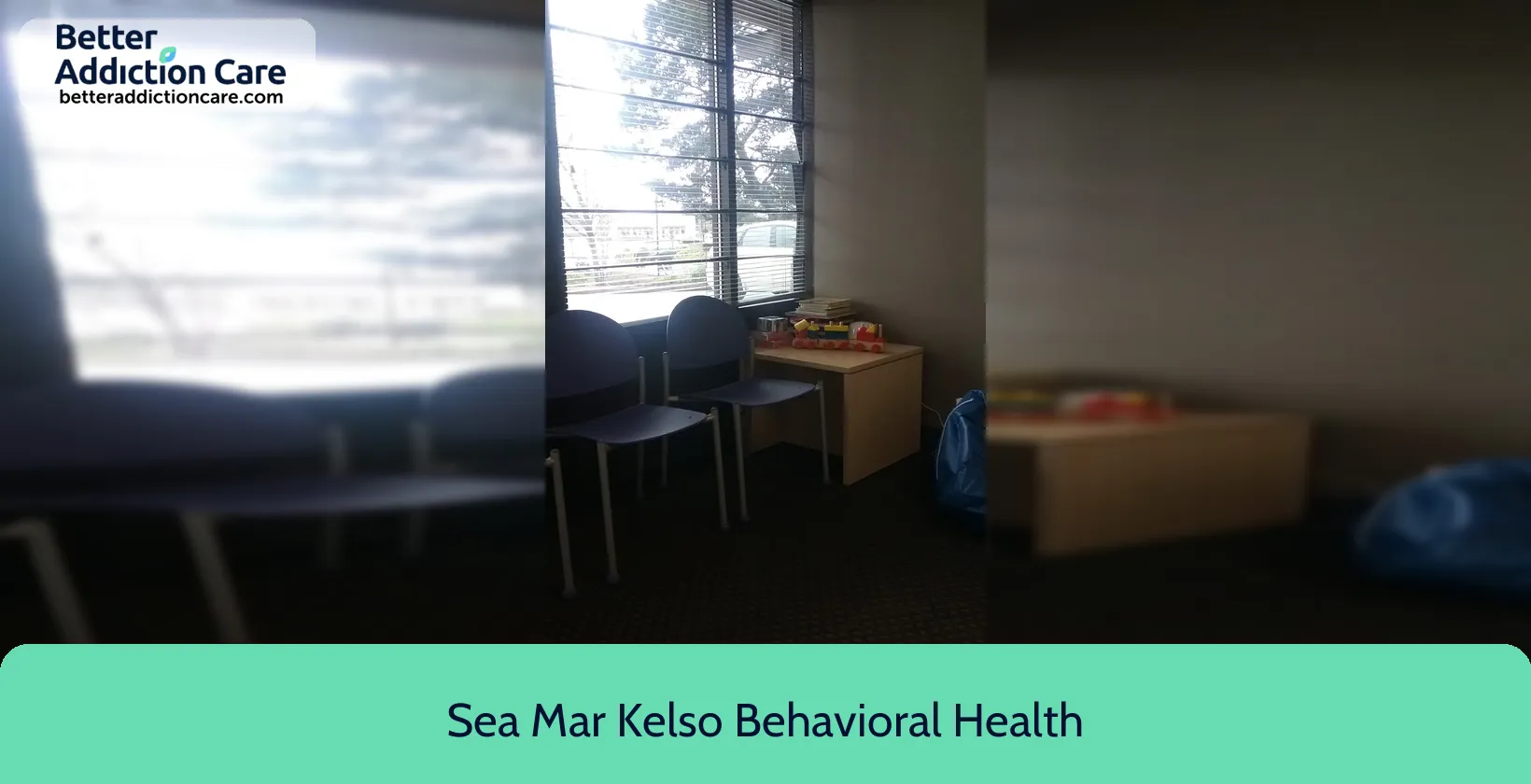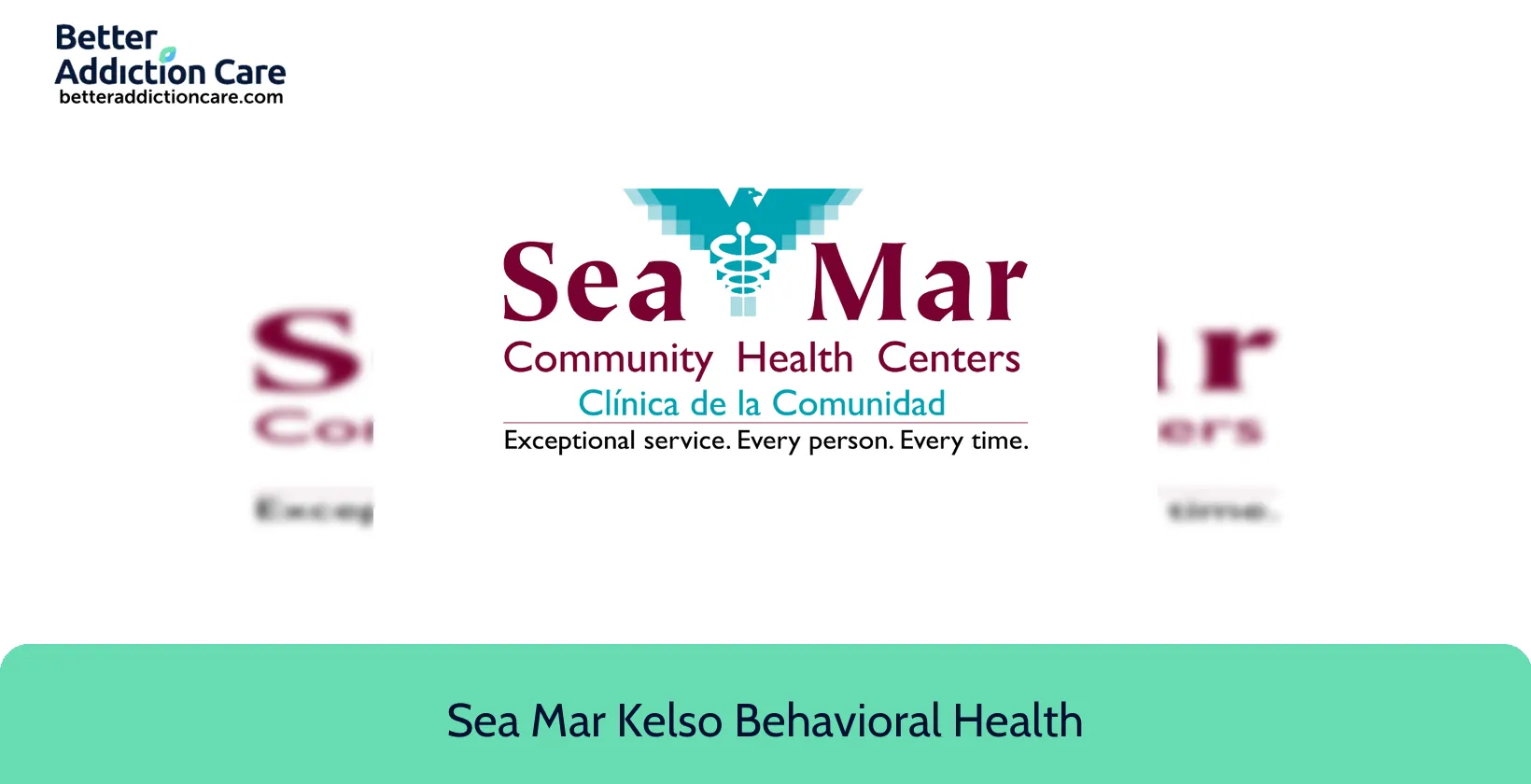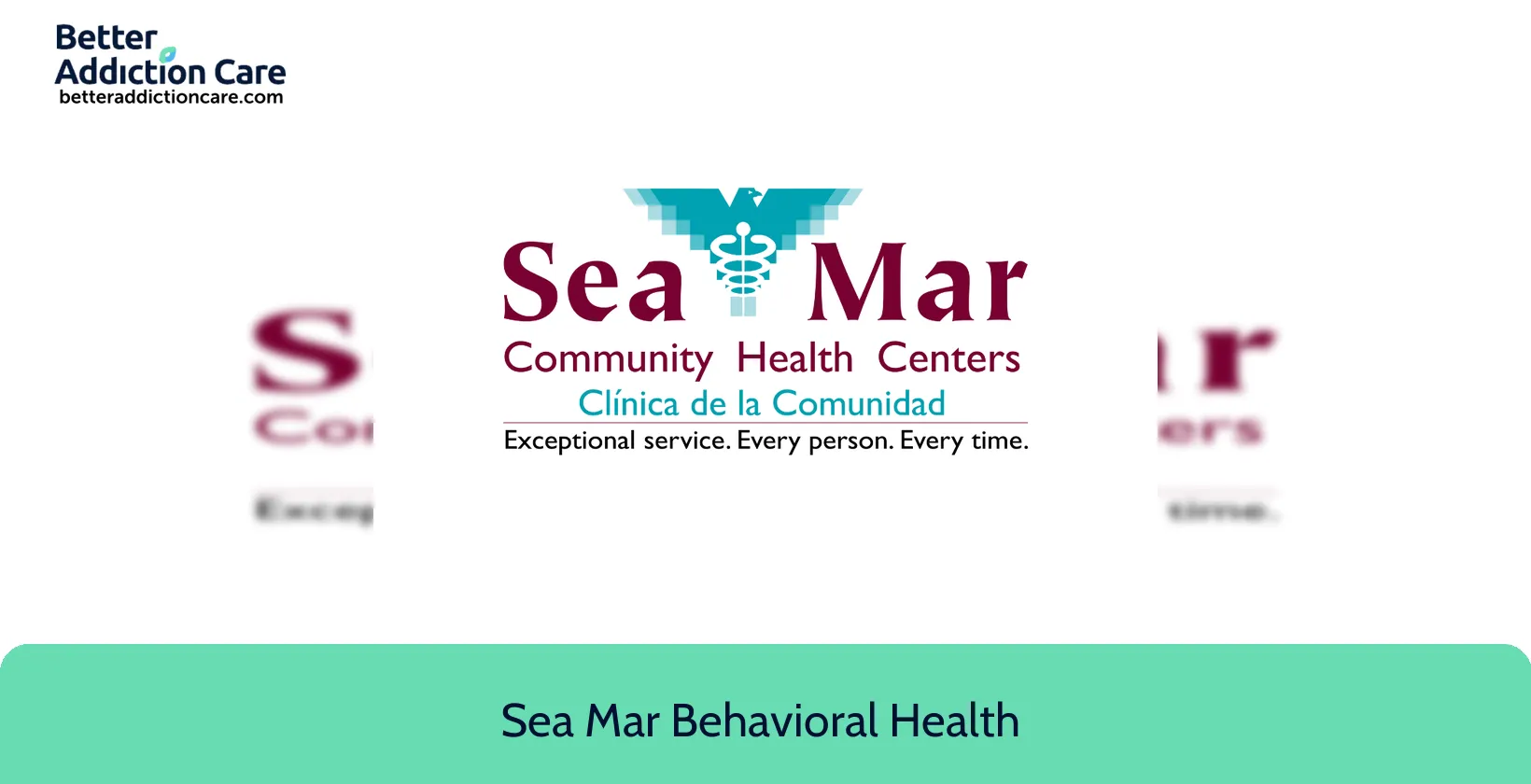Sea Mar Kelso Behavioral Health Clinic
Overview
Sea Mar Kelso Behavioral Health Clinic is a mental health treatment center for people seeking treatment near Cowlitz County. As part of their treatment modalities for recovery, Sea Mar Kelso Behavioral Health Clinic provides group counseling, cognitive behavioral therapy, and dialectical behavior therapy during treatment. Sea Mar Kelso Behavioral Health Clinic is located in Kelso, Washington, accepting cash or self-payment for treatment.
Sea Mar Kelso Behavioral Health Clinic at a Glance
Payment Options
- Cash or self-payment
- Medicaid
- Private health insurance
- U.S. Department of VA funds
- Sliding fee scale (fee is based on income and other factors)
Assessments
- Comprehensive mental health assessment
Age Groups
- Young adults
- Children/adolescents
- Adults
- Seniors
Ancillary Services
- Case management service
- Court-ordered outpatient treatment
- Family psychoeducation
Highlights About Sea Mar Kelso Behavioral Health Clinic
6.72/10
With an overall rating of 6.72/10, this facility has following balanced range of services. Alcohol Rehabilitation: 8.00/10, Drug Rehab and Detox: 6.00/10, Insurance and Payments: 6.40/10, Treatment Options: 6.49/10.-
Alcohol Rehabilitation 8.00
-
Treatment Options 6.49
-
Insurance and Payments 6.40
-
Drug Rehab and Detox 6.00
Accreditations
Federally Qualified Health Center:
Federally Qualified Health Center (FQHC) accreditation is a process of evaluation and recognition by the federal government for community health centers that provide comprehensive and accessible healthcare services to underserved populations. FQHC accreditation is essential for centers to receive federal funding and to ensure that they meet standards for quality, patient-centered care.
The Joint Commission:

The Joint Commission's addiction and behavioral health accreditation signifies a facility's commitment to high-quality care. It involves rigorous evaluations and assessments of clinical practices, ensuring effective, evidence-based treatment. Accreditation showcases a dedication to continuous improvement and patient safety, instilling trust among patients, families, and healthcare professionals. It's a mark of excellence in addiction and behavioral health care.
Treatment At Sea Mar Kelso Behavioral Health Clinic
Treatment Conditions
- Alcoholism
- Mental health treatment
Care Levels
- Outpatient
Treatment Modalities
- Group counseling
- Cognitive behavioral therapy
- Dialectical behavior therapy
- Telemedicine/telehealth therapy
- Eye Movement Desensitization and Reprocessing therapy
Ancillary Services
Languages
- Sign language services for the deaf and hard of hearing
Special Programs
- Veterans
- Criminal justice (other than DUI/DWI)/Forensic clients
- Clients who have experienced trauma
- Clients who have experienced intimate partner violence, domestic violence
- Persons 18 and older with serious mental illness (SMI)

Additional Locations
Contact Information
Read our Most Recent Article About Drug Addiction
DISCLAIMER: The facility name, logo and brand are the property and registered trademarks of Sea Mar Kelso Behavioral Health Clinic, and are being used for identification and informational purposes only. Use of these names, logos and brands shall not imply endorsement. BetterAddictionCare.com is not affiliated with or sponsored by Sea Mar Kelso Behavioral Health Clinic.













